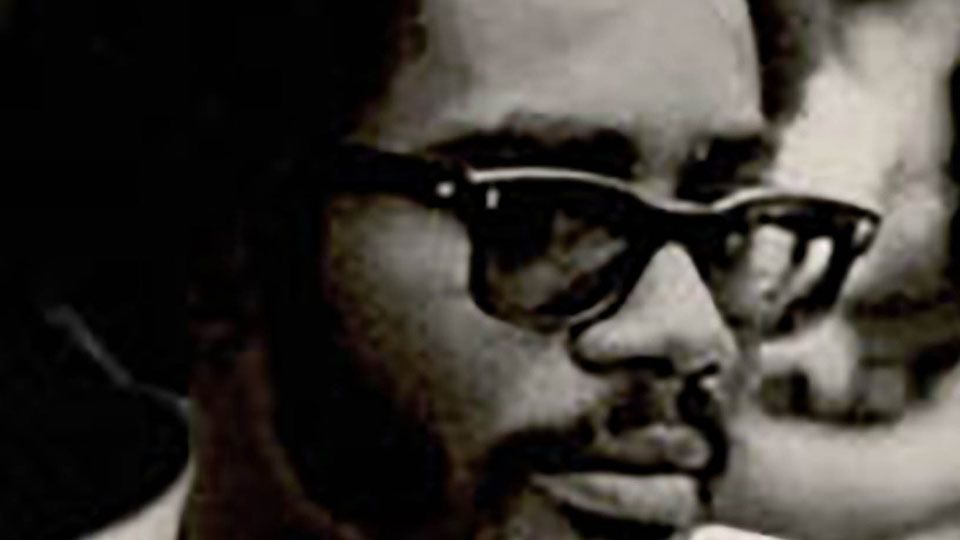
In Walter Rodney Speaks: The Making of an African Intellectual (African World Press), the Marxist historian (1942-1980) reflects on activism: “I’ve always made the point that one’s political contribution should come out of one’s principal work activity, whatever that happens to be, insofar as that is possible. Presumably, if one is a factory worker, it is on the factory floor that one’s politicization, one’s consciousness, comes out in day-to-day struggle. And if I am an academic, and so long as I remain an academic, I must attempt to make the most important political input during those very many hours that I spend contributing to teaching and researching or whatever other aspects of academic life may come into play.”
Rodney’s mission was always to effect radical change in whatever capacity. As a young scholarship student in Guyana, he was warned off writing about Marxism. So he headed to the UK to the School of Oriental and African Studies in London (SOAS) to meet stalwarts of radical socialism. But he was quickly disappointed. “There was no possibility for Marxist development within the old [British] Left,” Rodney recalled of the 1960s. “Very seldom did I hear these people talk about how they expected, if at all, to mobilize workers or to deal with migrants and so on. Besides, they were racist, and that’s another trip.…”
The radical is provoked into radical action
At least three things came out of Rodney’s estimation of the European left: First was his seminal study, How Europe Underdeveloped Africa (Howard Univ. Press), which he conceived and wrote as a response to Eurocentric attitudes toward Africa in general and the African diaspora in particular. Second, as soon as he completed his studies, Rodney escaped to the Tanzania of Julius Nyerere where, he writes, “new ideas were tested in day-to-day practice inside and outside the university.” The third was the formation of a graduate studies course, “Historians and Revolutions,” that he taught at the University of Dar es Salaam.
It is this 1970-71 course that makes a circuitous path to the posthumous 2018 publication, The Russian Revolution: A View from the Third World (Verso). Circuitous because Rodney did not remain an academic too long. Always eager to put ideas into practice, he would become emboldened by the dynamism in Tanzania, the liberation movements growing across the continent, and the armed resistance struggle in places like apartheid South Africa, where the African National Congress and the South African Communist Party were collaborating to overthrow that racist, capitalist regime. This returned Rodney’s thoughts to his native Guyana, whose 1966 independence had already succumbed to neocolonialism.
Connecting the Bolsheviks to the African struggle
It is “a view from the Third World” because Rodney drew interesting and provocative parallels between the situation in Africa and that of the 1917 Bolshevik Revolution. Since these views found no currency in the Western Left, which was busy revising its own view of the Soviets, he needed to make them explicit to an African audience.
According to the coeditors of the book, “Rodney’s objectives [in the graduate course] were to introduce students to dialectical materialism as a methodology for interpreting the history of revolutionary movements, to critique bourgeois histories and their liberal conceits of objectivity, and to draw political lessons for the Third World.”
Rodney had begun to compile his lecture notes from “Historians and Revolutions” for a possible book as he planned his return to Guyana to join an armed struggle against neocolonial domination. Like his How Europe Underdeveloped Africa, he wanted his message to appeal to a wider audience, not just the ivory tower. But in 1980, Rodney was assassinated by the Western-backed Forbes Burnham government in Guyana.
Rodney’s papers would make their way to academics Robin D.G. Kelley (Hammer and Hoe: Alabama Communists During the Great Depression) and Jesse Benjamin (board member of the Walter Rodney Foundation and co-editor of Groundings). Many hours of transcription and collating onto obsolete floppy discs later, we finally have this posthumous work by one our most brilliant, militant, and perceptive historians.
On Lenin, Trotsky, and Stalin
A serious study of the Russian Revolution inevitably means that not only does Rodney discuss the Bolsheviks and Mensheviks before and after Alexander Kerensky. Rodney also expands on Kerensky, more on Lenin, and much more on Trotsky and Stalin and their roles in the development of the Soviet Union. While Rodney had less kind things to say about the Trotskyists he met in London [except for C.L.R. and Selma James, who wowed him], he is not interested in the Western left obsession with putting distance between his Marxism and that of Leon Trotsky or Joseph Stalin. As the book develops, he draws these connections to that view from the Third World, and measures out praise and criticism—for example, he compares the 1968 Soviet invasion of Czechoslovakia to naked European colonialism.
Rodney passionately wanted to build the socialist movement, not create fairy tales deemed acceptable by corporate-funded state intellectuals. Rodney is clear and upfront that the perspective of the work is of an African and notes that where “It was not long ago that ‘we’ in textbooks designed for Africans meant ‘we the British’ or ‘we the French,’” this work was taking new ground.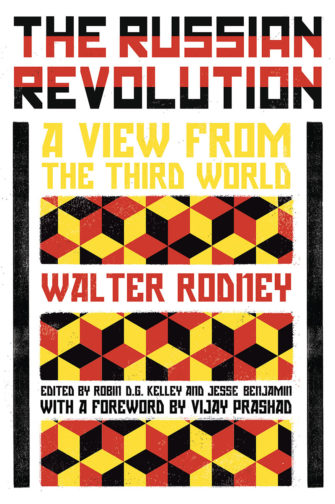
Regrettably, Rodney would not live to see and to comment on how quickly “we the Africans” or “we the Blacks” has been hijacked. The nonprofit-industrial complex today deigns to speak for Africans—colonized, inner-city, and marginalized people—at the behest of giant foundations and Western corporations, which spend little time critiquing capitalism and cannot be bothered with our voices.
To many in the Western left, Trotsky is a slur. But Rodney devotes a whole chapter to him (to Stalin, too) and has nothing but admiration for him as a Marxist historian to be emulated. This will undoubtedly be incongruent for many Western readers, but perfectly sensible to post-colonial Africa, where Rodney continues to draw out these parallels.
Trotsky’s “law of combined and uneven development”—whereby backward countries would adopt the newest technologies and industrialization and do it even by skipping over, say, the craft guilds of Western Europe—would have currency to an African vanguard where it might seem like hubris to privileged Western elites.
In tracing the origins of Trotsky’s permanent revolution to his law of combined development, Rodney goes straight to Marx and finds support for the contentious idea, then to a critic who dismisses Marx and Trotsky in this area; then he defends it. “More than being a point of theory,” writes Rodney, “the permanent revolution was a historical fact. Trotsky was not arguing whether it was good or not; he was saying that that was the situation in 20th century Russia.”
Rodney, here and throughout the book, acknowledges the critics and detractors, cites their work like a good social scientist, then upends it, sometimes dismissively but often methodically.
In any case, this is Rodney’s style throughout the book. Point. Counterpoint. Goal Point. It’s refreshing and maybe seems old-fashioned in the age of social media. The book is richer for it since just as your own doubts arise, Rodney is ready to address them.
Rodney takes two of Joseph Stalin’s main critics, Trotsky himself and historian Isaac Deutscher, and distills their opposition, and he does acknowledge the crimes of Stalin. But it’s worth remembering this was 1970, not the mid-1990s when Soviet archives were opened up, bringing new light onto Stalin’s tenure. And Rodney just as readily acknowledges his achievements given real-world problems faced by a young nation and global movement.
“From a socialist perspective, much can be said by way of adverse criticism of the political process of building socialism in the Soviet Union. But in the end, the balance is in favor of the positive elements. There was an enlargement of freedom in the Soviet Union after 1917 because real freedom is a function of cultural and economic equality.”
A prescription for militant action by North and South
At this point, Rodney’s intention with his audience is clear and takes very little reading between the lines:
“Every time that a socialist state comes into existence, it is likely to find that its survival comes into conflict with some of the principles of justice it would ideally like to espouse. Who can guarantee that every citizen’s rights will be fully protected when the security forces take justifiable action in the interests of the state and citizens as a whole? It is well to recognize that the Soviet state was operating in a real world and had first to guarantee its existence. In the final analysis, however, while Soviet transformation departed from the socialist norms in many ways, it remains a superior alternative to capitalism and bourgeois democracy from the viewpoint of the workers and peasants. Moreover, it was at no point equivalent to fascism.”
Some will dismiss “a view from the Third World” as a rationale for government excesses. Others may see it as a justification to be excessive. But since those early years of the USSR are as “ancient history” as the African liberation movements of the 1960s and ’70s, we have to appreciate that Rodney, and the world in which he was working in Africa, witnessed these movements day to day. Attacks. Counter-attacks. Another attack. France, the UK, and the U.S. were doing their utmost to not only keep African leaders away from the Soviets but also “contain” the Soviets; and the Soviets and Eastern bloc were doing their part to support these liberation movements.
As Rodney knew well, liberation outside of London’s Hyde Park or academic circles was a dirty business, and his course was not about sugarcoating the mission his students were undertaking. Whatever one’s view from that Third World, we would do well to understand it today. If our once radical political movements have not crossed the abyss and gotten too cozy with state power, in the interests of some kind of peace, we have come dangerously close to this line. Working-class organization against capitalism is far from a squeaky clean struggle. We must do more than dream of what the better world looks like but face the difficult, arduous work to build and sustain it. In some sense, we are all in the Third World now.
The Russian Revolution: A View from the Third World. By Walter Rodney. Edited by Jesse Benjamin and Robin D.G. Kelley. Foreword by Vijay Prashad. Verso, 2018. 336pp.

MOST POPULAR TODAY

‘Warning! This product supports genocide’: Michigan group aims to educate consumers

After months of denial, U.S. admits to running Ukraine biolabs

“Trail of Tears Walk” commemorates Native Americans’ forced removal

Hold the communism, please: SFMOMA’s Diego Rivera exhibit downplays artist’s radical politics



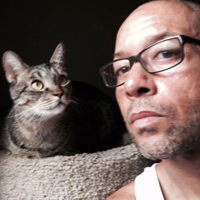
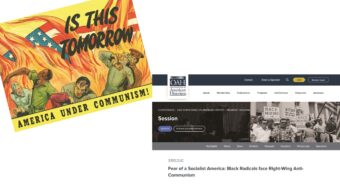
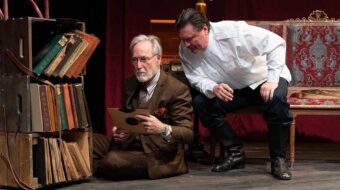
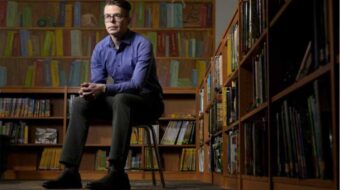
Comments